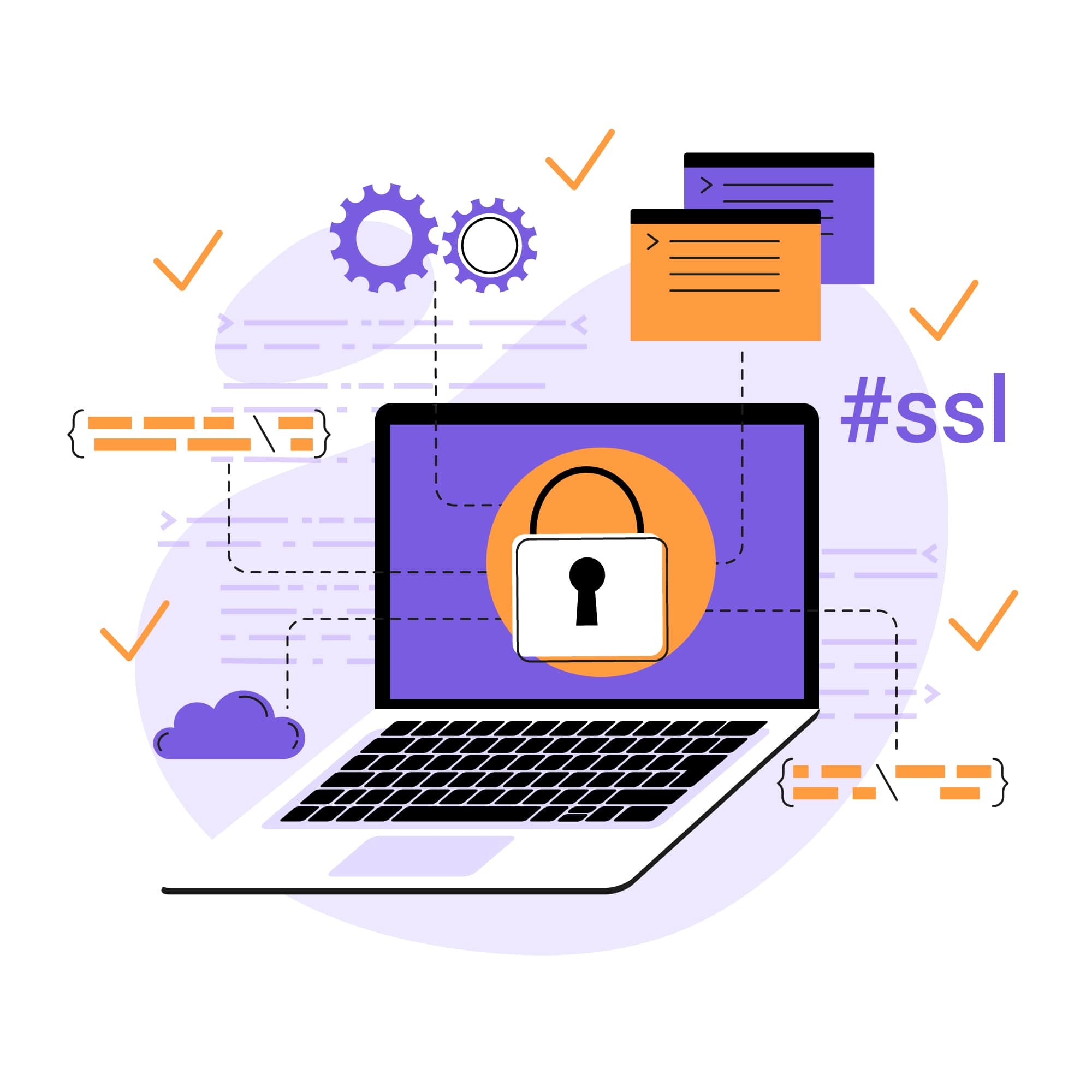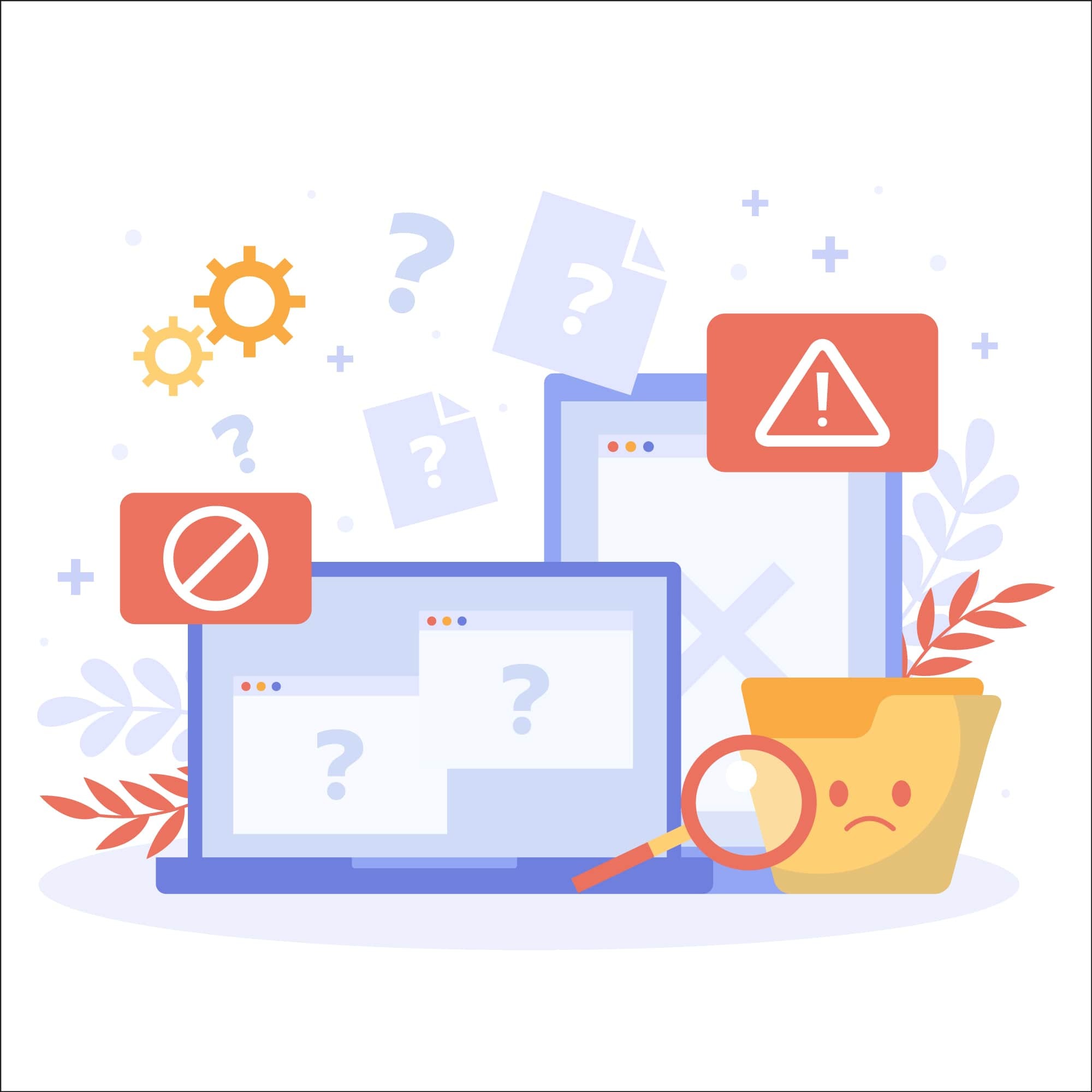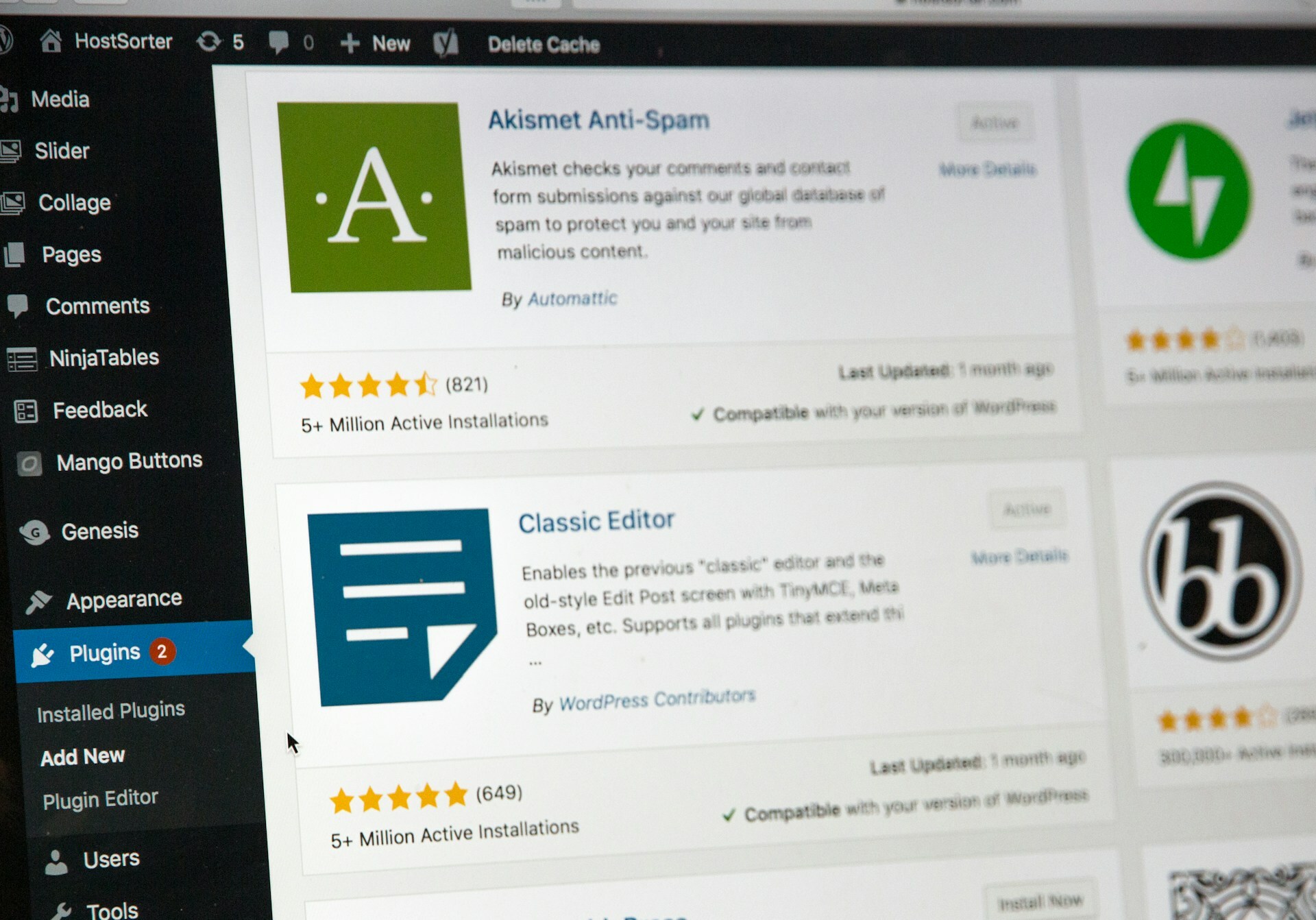
Magento Security Audit: Essential Checks and Procedures
Cybersecurity is an increasingly critical part of our digital world. It's especially essential for businesses on eCommerce platforms, who request personal and financial information, to prioritize their website security.
Different platforms have different considerations when it comes to cybersecurity so a website security audit should be tailored accordingly. One of the popular platforms for large eCommerce sites? Magento.
Magento has become a reliable and robust platform for online business. With its large open source platform and increasing popularity, however, Magento has inadvertently caught the eye of another group: hackers.
Magento stores have been the victims of several large cyberattacks throughout the years. For example, in one 2020 hacking attack, over 1,000 Magento sites were hit, and in a 2022 attack, over 40% of Magento 2 websites were targeted.
This shows how essential regular Magento security audits are. This type of audit is a process that involves diving deep into the technical setup of your store to identify vulnerabilities and patch them before they can cause harm.
In this guide, you’ll learn the importance of consistent Magento security checks and look at specific strategies store owners can take to guarantee their website stays secure over time. Since Magento 1 is no longer receiving security patches as of June 2020, we’ll primarily focus on Magento 2.
Importance of security for eCommerce sites
A secure eCommerce store is as important as having a reliable product, if not even more so. Online businesses are targeted by cybercriminals more than ever, having the potential to lead to devastating financial losses and irreparable damage to brand reputation.
Your customers trust you with sensitive information every day – names, addresses, and credit card numbers. This data is a treasure trove for hackers since data breaches can result in substantial financial loss. The latest IBM Cost of a Data Breach Report showed that the average cost of a breach in 2023 was a staggering $4.45 million, up 15% from 2022.
Beyond financial loss, a data breach can tarnish your reputation and shatter customer trust, potentially resulting in loss of business.
What is a Magento security audit?
A Magento security audit is a thorough, in-depth examination of your Magento-based website to identify potential vulnerabilities and threats. Conducting this type of audit is essential for safeguarding your website and data from possible data breaches, malware attacks, and other cyber threats.
Your standard Magento security audit will cover elements such as:
Your server environment: The server hosting your website can be an entry point for attacks if it’s not properly secured. A Magento audit would check for secure file permissions, proper encryption protocols, and other server-level safeguards.
The Magento installation itself: Every version of Magento comes with its own potential set of vulnerabilities. The audit verifies if you’re running the latest, most secure version and checks for any unpatched security flaws from any previous versions.
Extensions and themes: Third-party extensions and themes can inject unsecured code into your site. The audit identifies any vulnerable extensions or themes and offers recommendations for more secure alternatives if required.
Custom code: While custom code can help you tailor your website to meet your specific needs, it can also introduce unexpected security loopholes. An audit would review your custom code to ensure it follows the best security practices.
The importance of a security audit
To stay secure, you must regularly conduct these audits. These audits can help you spot vulnerabilities and protect your site from any number of looming online threats, especially when customer data, site availability, and compliance with data protection regulations are on the line.
Below are just a few of the reasons why a security audit should always be on your radar.
Protecting customer data
As a business, safeguarding your customers' data should be a top priority. By taking proactive security measures, you can ensure that sensitive information is kept secure, which not only gives you peace of mind but also builds up trust with customers.
Ensuring site availability, performance, and overall functionality
Cyber threats can significantly impact your site's performance and availability, and DDoS attacks and malware infections can slow down your site or make it entirely unavailable to users. Regularly auditing your website ensures threats can be swiftly detected and neutralized.
Keeping up to speed on browser compatibility
In addition to providing security, audits also help ensure browser compatibility. Regular scans check for any compatibility issues that could hinder your customers' browsing experience. This way, all your website's features work seamlessly across different browsers and devices.
Maintaining compliance with data protection regulations
Regulatory compliance is a major factor to consider in website security. Given the potential for hefty fines due to breaches and non-compliance, protecting your online business becomes critical. Conducting security audits can help ensure you meet all necessary standards like PCI compliance for online retailers.
For further details on this, take a look at our PCI compliance checklist.
Preventing future security issues
Taking a proactive approach to Magento security checks can help prevent future issues before they rear their ugly head. By identifying and patching vulnerabilities before they can be exploited future threats are effectively thwarted.
Maintaining your business reputation
In an era where trust is pivotal, a single security breach can tarnish your business reputation significantly. Proactively protecting your website helps you maintain your reputation and enhances customer confidence in the long run. After all, customers are likely to trust a business that values and prioritizes their data security compared to one that does not.
How to perform a Magento security audit
To effectively perform this audit you must be thorough, diligent, and have a solid understanding of the intricacies within the Magento platform. An effective audit will follow standard best practices without compromising on any single element.
Let's dig a little deeper into the process.
Preliminary preparations:
Begin by creating a backup of your site. This is important because it gives you a safety net should anything go awry during the audit process.
Next, familiarize yourself with the site's architecture, modules, and customizations. As Magento is an open source platform, your website could have numerous unique features and configurations.
Understanding these will help you recognize if any changes occur during the audit, which could signify a potential security threat.
Technical assessment:
After you’ve completed your preliminary preparations, it’s time to conduct a technical assessment; this is a process that involves updating your Magento version and applying the latest security patches to bolster your website's defense against cyber threats.
Update to the latest version of Magento
Is your online store running the latest version of Magento 2 Open Source or the latest version of Adobe Commerce?
You can check your Magento version through your admin panel by scrolling down to the bottom of the page and looking for the listed version in the footer.
Updating to the latest version safeguards your website from the known vulnerabilities present in older versions. To upgrade to the latest version, take a look at the latest upgrade instructions provided by Adobe.
After you’ve followed up on software updates, applying the latest security patches is another critical step in the audit. These patches address specific vulnerabilities that have been identified in your current version of Magento.
Check for and remove any unnecessary third-party extensions or modules
Analyze your site for any superfluous third-party extensions or modules. These can pose a threat if not updated or secured routinely, and even if an extension is convenient, it could potentially be compromising your entire website. Be vigilant and remove any modules you don't use or need.
CAPTCHA on front-end forms
Front-end forms can be a magnet for bots and an entry point for malicious attacks. Make sure to enable CAPTCHA on all these forms, as it serves as an effective deterrent keeping your site safer from automated threats and ensuring human interaction is genuine.
Secure checkout processes
eCommerce means transactions, and transactions mean handling sensitive data. Encourage secure payment options and use HTTPS for all checkout pages. An SSL certificate enables the encryption of data during transactions, reinforcing customer trust in your brand.
Scan for site vulnerabilities and malware
Routinely scan your site for vulnerabilities and malware, as regular scanning can quickly spot potential threats before they escalate; this includes breaches, phishing attempts, or SQL injections.
Server environment audit:
After your technical assessment is complete, it’s time to perform a server environment audit. This often includes checking server configurations, making sure SSL encryption is active, and verifying all of your server’s file permissions are correctly set. Let’s walk through each of these one by one.
Check server configurations and settings
Your server is the backbone of your Magento website functioning, which is why ensuring that all of your server configurations are accurate and secure is vital. Review these settings and examine whether your PHP has been updated, if the secure flag for cookies is enabled, or if any unneeded open ports could serve as entry points for cyber threats.
Ensure the proper use of SSL and HTTPS
SSL (Secure Sockets Layer) and HTTPS (HyperText Transfer Protocol Secure) are primary security measures that ensure data between the user's browser and your site is encrypted and secure. Verify the proper implementation and activation of SSL certificates across your website.
Verify file permissions are correctly set
File permissions dictate who can access and modify files on your website. Incorrectly set permissions can leave your site vulnerable to unauthorized access and potential harm, which is why thoroughly checking file permissions to ensure they are correctly established is incredibly important. Do not skip this step!
Code audit:
The next step of the audit process is to check your codebase, review all your themes and templates, and scan for common attack vectors. We’re going to walk through each of these elements and explain how and why they’re performed.
Check your codebase
A critical part of ensuring your Magento site is secure involves conducting a comprehensive codebase check. This means evaluating all of the custom code on your site to detect any vulnerabilities.
Review all themes and templates
Themes and templates play a major part in the front-end user experience of your store, but they can also serve as potential entry points for hackers if not regularly reviewed and updated. Conduct a thorough review of all themes and templates to check for weaknesses. If any are identified, you should promptly update them in line with Magento's latest security guidelines.
Scan for common attack vectors
Common attack vectors such as cross-site scripting (XSS) and SQL injections can pose grave threats to your Magento site. It’s important to scan for these common attack vectors to prevent them before they can affect you.
User and permissions audit:
When dealing with the sensitive data of your customers, you’ll need to keep a close eye on who has access to what. This begins with a thorough audit of administrative user accounts. Understand who has access to important areas of your site and ensure their access rights are appropriate for their role. Overlooking this step could provide an easy gateway for unauthorized access.
Additional security measures that could be implemented include IP address whitelisting, enforcing strong passwords, and using two-factor authentication to prevent spam and password brute-force attacks.
Post-audit actions:
After a comprehensive Magento security audit, your work doesn't stop there. Now you have to ensure that your eCommerce site remains secure. This is an ongoing commitment that requires continuous attention.
Document and prioritize issues
Post-audit, document each security issue that surfaced during the process. Categorize these concerns based on their severity and potential impact on your business operations.
Make a remediation plan
After identification and categorization, develop a plan to address and remediate your highest-priority vulnerabilities. By having a remediation plan in place, you’ll know what your most important vulnerabilities are and have a plan of tackling them one by one.
Utilize regular security optimization and monitoring solutions
Regular security optimization and monitoring to stay ahead of potential threats is indispensable. This isn't a one-time operation but an ongoing process that needs to be embedded in your operational DNA.
Routinely check for new vulnerabilities and keep your systems updated with the latest security patches. One way to stay on top of updates is to enable automatic security updates wherever possible to minimize the risk of being compromised.
When to seek professional help
There are certain scenarios where conducting an in-house audit might not suffice.
If your site experiences frequent and repetitive breaches despite continuous updates and standard security measures, it's time you consider hiring a professional. Given the complex nature of Magento's site structure, in-house IT teams often struggle to thoroughly rectify vulnerabilities.
It's a time-consuming process requiring regular checkups, which could mean leaving your IT team with little time for other technical tasks.
Choosing a Magento security audit service
Choosing a service can be a tough call given the sheer number of options available in the market, but if you know what to look for, you’ll be one step ahead of the competition.
You should do everything you can to seek out an experienced, reputable company that knows the Adobe Commerce or Magento platform inside and out.
How SiteLock can help
SiteLock has continued to be a key player in the Magento Security industry, offering automatic patches for vulnerabilities, automated real-time corrections for detected issues, regular malware scanning and removal, and much more.
First and foremost, SiteLock can help ensure PCI compliance on your payment gateways – a critical aspect of Magento sites considering the sensitive nature of payment information that they handle. PCI compliance is more than a security measure – it's a requisite for business credibility and trust-building among users.
SiteLock's Web Application Firewall (WAF) protection is another significant feature that helps protect your site from advanced cyber threats and stave off damage to your website infrastructure and operations.
Learn more about how SiteLock can help secure your Magento store today.
Photo by Rubaitul Azad on Unsplash





